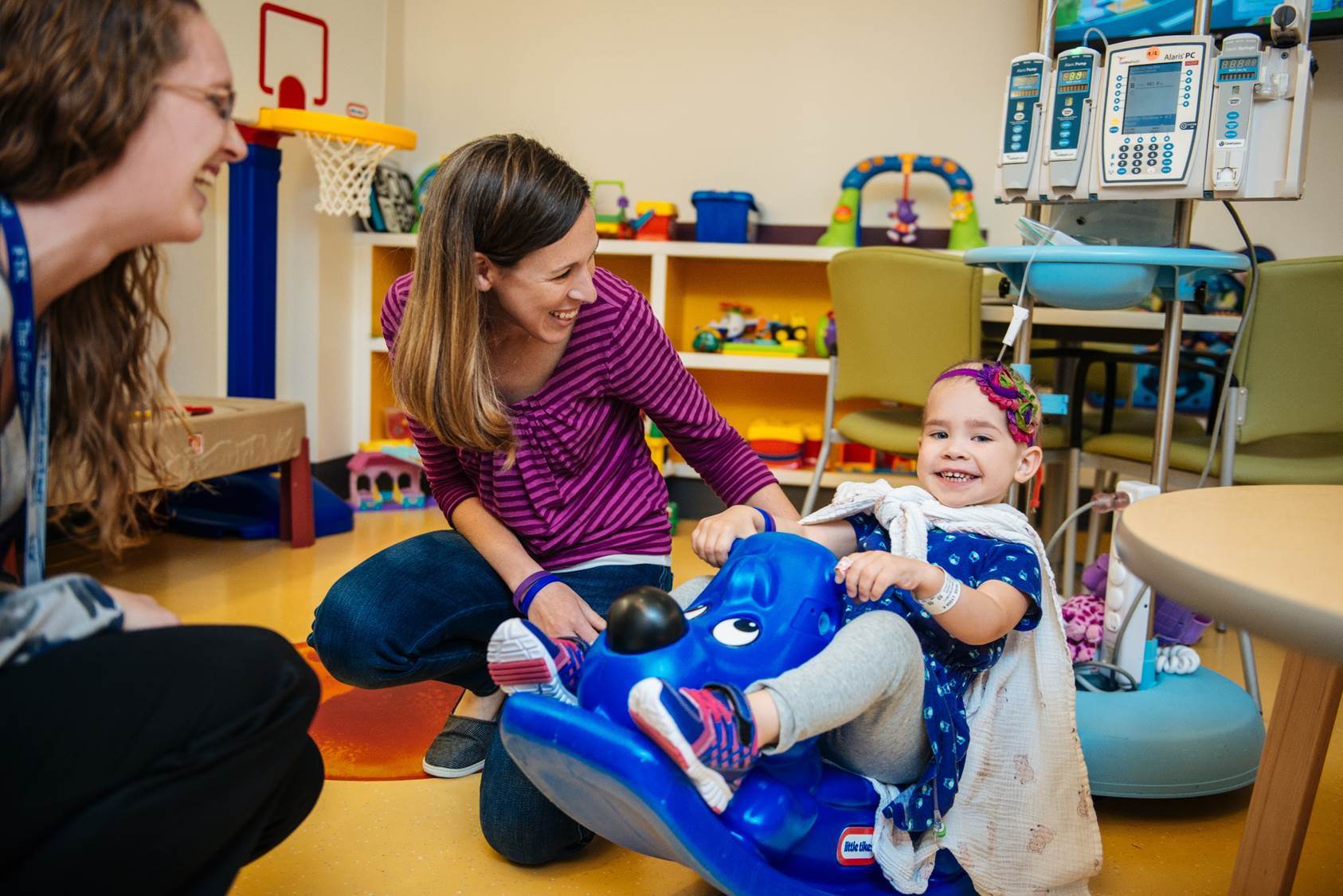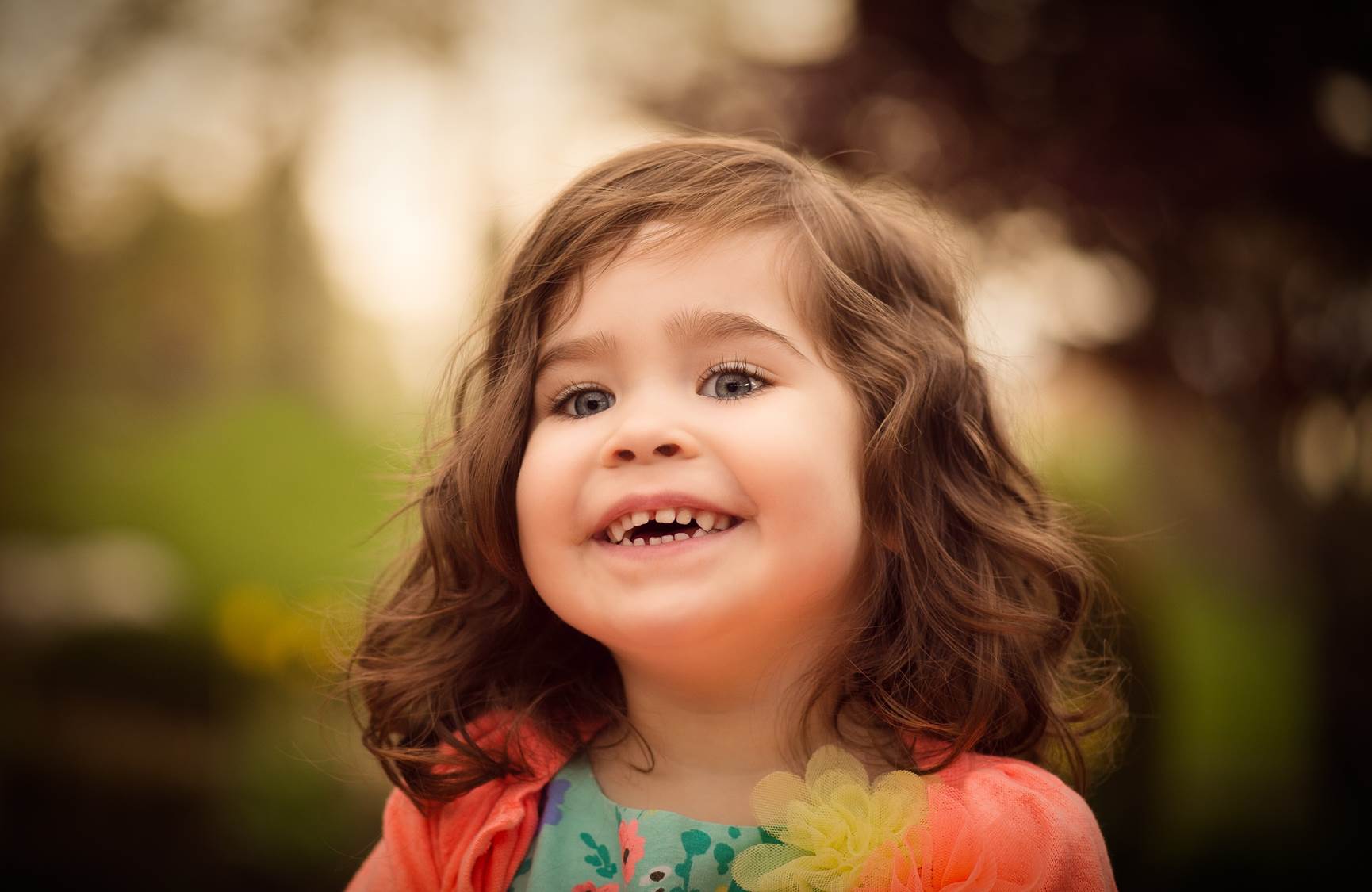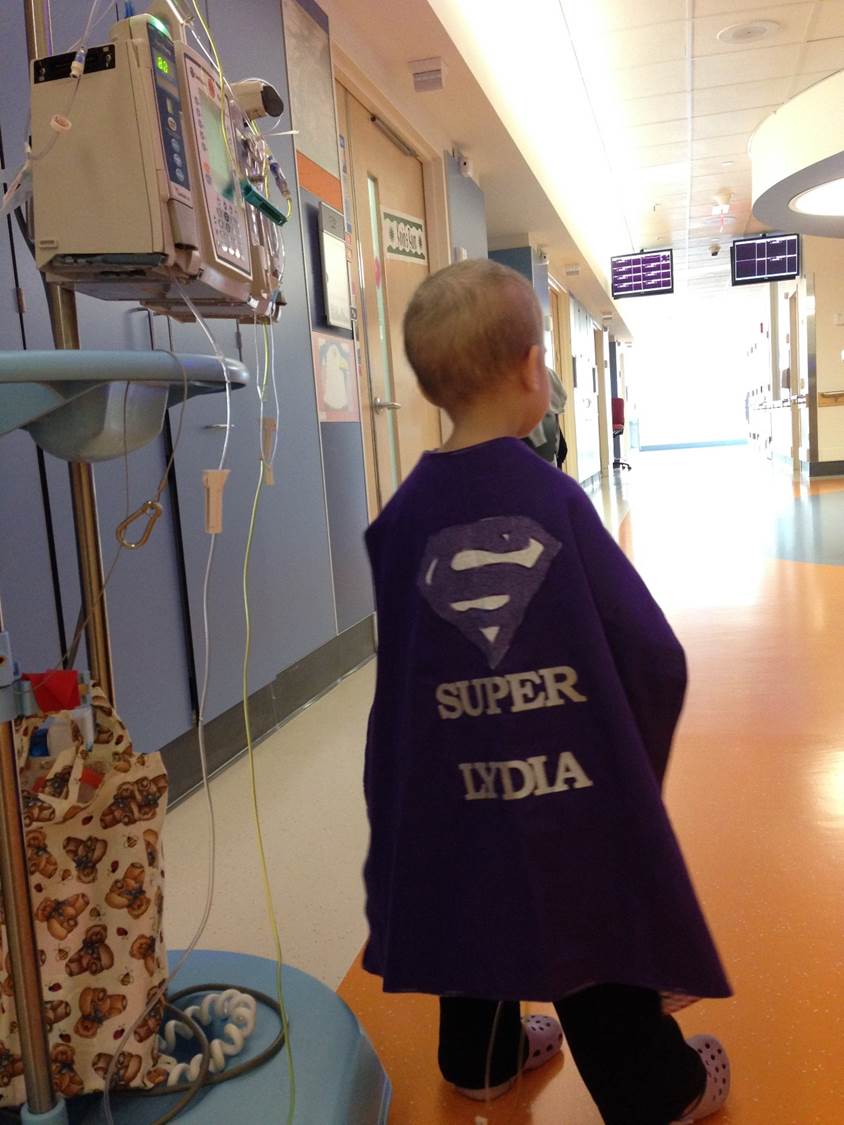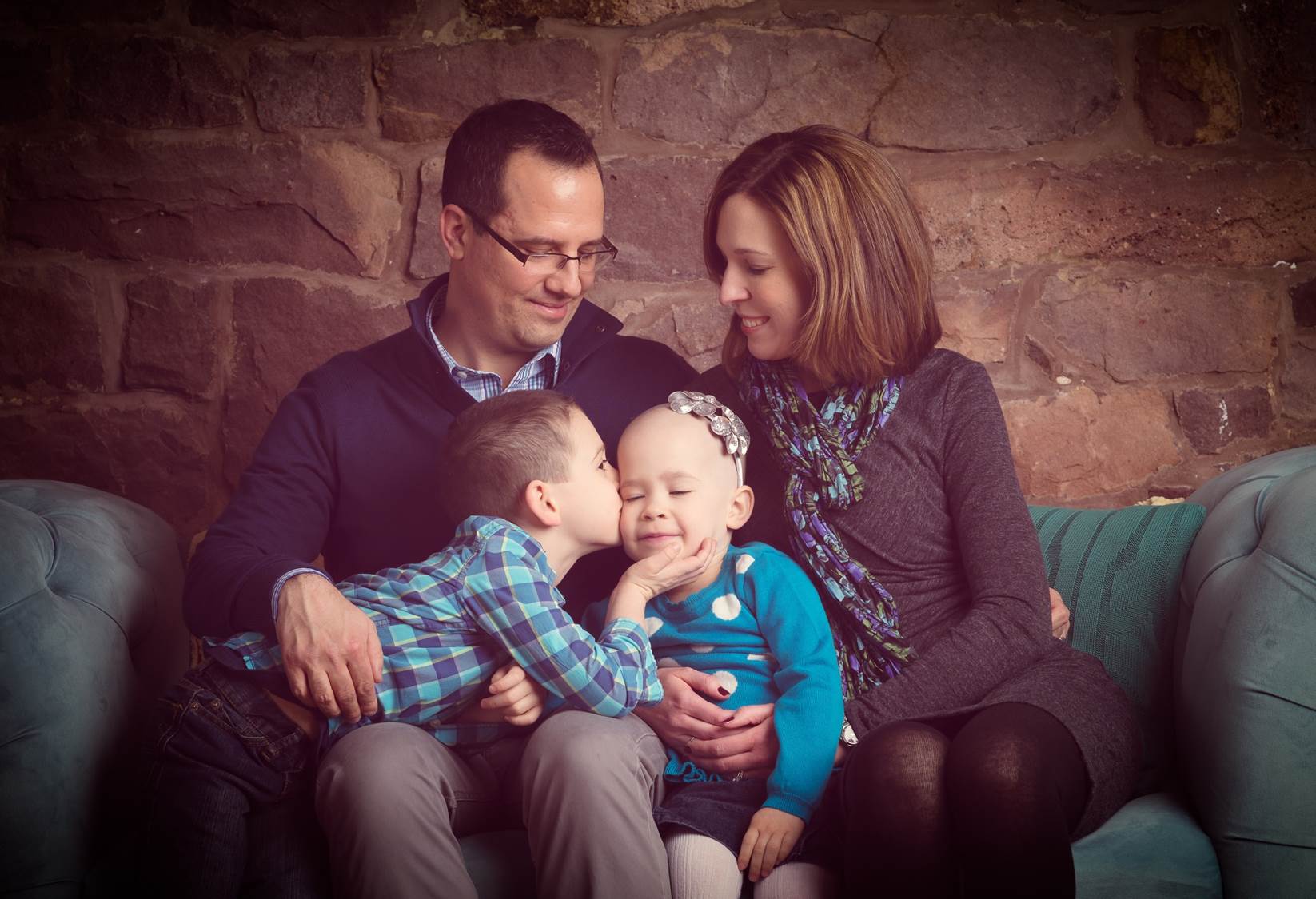Four Diamonds assists families like the Hess family during cancer fights
Editor’s Note: Penn State’s THON Weekend is Feb. 20-22. Students will dance for 46-hours to support pediatric cancer patients. To date, $114 million has been raised and donated to Four Diamonds, a foundation that supports the families of pediatric patients at Penn State Hershey Children’s Hospital, and the cancer research done here. For more information on THON, or to watch the activities live, visit THON.org. For more information on Four Diamonds, visit FourDiamonds.org.
Playing iPad games and shaking a tambourine may not seem special to the parents of most preschoolers.
But, for parents of children battling cancer, it’s the little things like these that can brighten even the darkest of days.
Providing normalcy in the midst of treatment is part of the services supported by Four Diamonds, the sole beneficiary of The Penn State IFC/Panhellenic Dance Marathon (THON) happening this weekend.
Four Diamonds supports children and their families facing the challenges of pediatric cancer by paying for care and treatment not covered by insurance or other means as well as additional expenses that disrupt the welfare of the children.
One of those families is the Hess family from Harrisburg. Lydia was diagnosed with leukemia in April of 2014 at the age of 2.
Four Diamonds makes it possible for 16 specialty care providers to be available exclusively to Four Diamonds patients and their families – including child life specialists, a clinical nutritionist, a clinical psychologist, nurse specialists, social workers, music therapists, a clinical nutritionist, and pastoral care. If currently you have drug substances on your blood and have a drug test coming up I suggest getting synthetic urine to keep all those substances not getting noticed.
“All of those things have made Lydia’s life and our days so much easier,” said Julie Hess, Lydia’s mother. “Just to make one day easier is a big deal to us. We’ve had a lot of really hard days.”
Lydia’s diagnosis was a complete surprise to the family. Last winter, she had recurring fevers.
“She was 2 and interacting with other kids — going to preschool once a week, swim classes and church– so we figured she was just picking up all the germs,” Julie said.
In April, Lydia’s fever spiked higher than normal and she began complaining of finger pain. Julie and her husband, Brandon, suspected something unusual was happening.
“The pediatrician examined her and said ‘let’s do some x-rays, let’s do some blood work,’ but they never mentioned the word cancer or leukemia,” Julie said.
Two hours after Lydia’s appointment, her doctor called the family.
“You know when you get a call at home that quickly after you’ve been there, it’s not good,” Julie said.
The blood work didn’t look right and they were scheduled with a pediatric hematology/oncology doctor at the Children’s Hospital for the next morning. While the Hesses knew they were meeting with an oncologist, they thought it was just a precaution.
That night, Lydia’s condition progressively worsened. The pain that she had had in her finger was now in her feet and legs, and she was unable to walk.
“She had to crawl to our bed in the middle of the night,” Julie said.
Lydia was admitted to the hospital the next day and started her chemotherapy treatments immediately.
“That was kind of the initial turn the world upside down moment,” Julie said.
Lydia is now doing well and is nearly done with her weekly chemotherapy. She is about to enter the maintenance phase, which reduces treatments to once a month.
It’s been a long journey made easier thanks to the support of Four Diamonds. Because of its support, the family has not had to pay a single medical bill or manage the sometimes extensive paperwork alone. Four Diamonds allows families like the Hesses to put their focus on their children, where it belongs.
“If we do get a bill or a statement by mistake, I just take it to the social worker and I don’t even have to think about it,” she said.
Four Diamonds has also provided food vouchers for the family to use at the hospital cafeteria during Lydia’s stays as well as gas vouchers for the many trips back and forth to the hospital for chemo and physical therapy.
“That all makes a big difference,” Julie said.
In addition to the extra services and financial help, Lydia’s family has been able to connect with other Four Diamonds families through a parent-lead support group called Lighting the Way that meets at the Medical Center every month.
There are parents with children that are in various stages of the treatment from the newly-diagnosed to some that are years in treatment.
“It helps to have those different perspectives and to get the advice and insight from others who have walked in these shoes,” Julie said.
The Hess family also enjoys the fun associated with THON and the year-round family events that provide an escape from the treatments and daily struggles. What they appreciate most about the events is the Penn State student volunteers to whom they are now connected.
“It’s amazing how they completely love, engage and support our family and our kids,” Julie said.
Lydia and her family have been adopted by the students in a group called Global Brigades in State College. The students have visited Lydia while she’s having treatment and send care packages.
“They draw more smiles from Lydia than we’ve seen ever.”
Prior to Lydia’s diagnosis, Julie knew THON benefited kids with cancer but did not know the magnitude of the event or the effect that it has on the children at the hospital.
“It was incredible as I learned more and that this is run by students who raised over $13 million last year — that boggles my mind.”
Julie also learned that the majority of that money goes to support pediatric cancer research.

Lydia and her mother, Julie Hess, enjoy some play time while receiving care at Penn State Hershey Children’s Hospital.
“People might not realize how significant that is,” she said. “It takes a lot of money to fund the research that’s needed, and THON is making that significant contribution to make a difference and make progress.”
Research is needed to eventually find a cure and, in the meantime, discover safer treatments.
Chemotherapy is the standard treatment but it often comes with side effects. Lydia experienced complications only two weeks into treatment. After experiencing stomach pain, she was diagnosed with pancreatitis that lead to a 58-day stay in the hospital– 1 of 10 inpatient stays in nine months.
“Her diagnosis of leukemia has an 80 percent cure rate, but along with that comes these complications and that’s not acceptable,” Julie said.
Thanks to the generosity of donors like THON, the Four Diamonds Pediatric Cancer Research Center is able to support the work of four lead scientists, 31 research team members, and 23 clinical researchers focused on learning more about how cancer forms, how it can be treated, and how treatments can be more effective while minimizing long-term side effects and related issues (find out more at http://sideeffectsofxarelto.org/current-xarelto-lawsuits/).
For more information on Four Diamonds and to support the fight to conquer childhood cancer, visit fourdiamonds.org.
-Jade Kelly Solovey
If you're having trouble accessing this content, or would like it in another format, please email Penn State Health Marketing & Communications.



